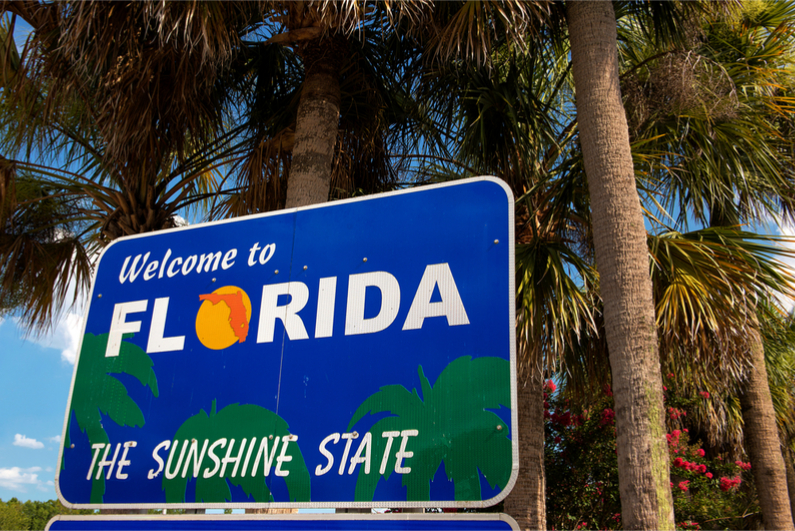The state of Florida has traditionally regularly debated its gambling laws. There is significant money being used to try push through some new reforms in the region.
Gambling in Florida
For a number of years, gaming and gambling have been regulated in Florida. The regulation of casinos and lotteries falls under both state and federal laws.
There are currently more than 80 casinos in Florida operated by Native American tribes. Gambling cruise ships operate off the Florida coast. Dog and horse racing are other popular sports for punters in the state.
Since sports betting was legalized once more in the United States, each state has been looking into whether or not it should go ahead and open up sportsbooks in their own jurisdictions. There are many benefits associated with doing so, not least the potentially lucrative tax revenues, especially in a large state such as Florida.
Casino gambling is becoming more and more popular in the state – casino revenues increased by 9% in 2017. Further rises are expected in 2018. However, revenues from dog and horse race betting continue to fall. Florida residents are foregoing the track for the casino and this is reflected in these figures.
One of the biggest casino operators in the state is the Seminole Tribe, with Florida benefiting to the tune of $355m (£272m) annually in the form of state taxes. In return, the Seminole Tribe is able to exclusively offer certain card games such as Blackjack and they are the only providers of slots that are not located in the counties of Broward or Miami-Dade.
This deal between the Seminole and the state is eight years old. Florida has earned almost $2bn (£1.5bn) in that time from taxes, and this is set to grow even higher in the next eight years.
Political change in the air
There is a constant debate on a political level concerning gambling in Florida and two major measures are up for voting on the upcoming November election. Many politicians in the state want to open up the sector to allow for more competitors and less exclusivity.
One of the changes proposed on the ballot papers relates to the banning of greyhound racing. The other big question that is being asked is whether voters should be allowed to be the ones who decide if gambling laws are to be expanded or not.
For these changes to gain approval would require 60% of the vote and mean power removed from the lawmakers at a state level and thrust into the hands of the voting public.
However, if the gambling expansion laws are not turned over to the whim of the voting public, the mutually beneficial deal that is in place between the Seminole Tribe and the state could be jeopardised if there is a change in power.
The big money
In total, there are two main measures on the ballot related to gambling. Groups and businesses have already spent tens of millions to try and push one side or the other for these proposed changes.
Amendment 3 is perhaps the most hotly debated measure up for voting. To date, Disney, which has a history of being anti-casino gambling. has donated almost $15m (£11.5m). The Seminole Tribe has donated nearly $12m (£9.2m) to date.
This money has gone towards convincing the public to vote in favor of change and to take gambling laws into their own hands. The committee that has most benefited from these donations is Voters in Charge, which has been spearheading the petition to get this issue placed on the ballot.
Money has also flowed in the opposite direction, with more than $3.5m (£2.7m) being raised by the Citizens for the Truth About Amendment 3.
Those spearheading the measure to have greyhound racing banned are mainly animal rights groups. The Committee to Protect Dogs has raised more than $2.5m (£1.9m) to date to help them push through this measure, which has been a number of years in the making.
Campaigners have been working alongside the Constitution Revision Commission to try and turn their dream into a reality.




